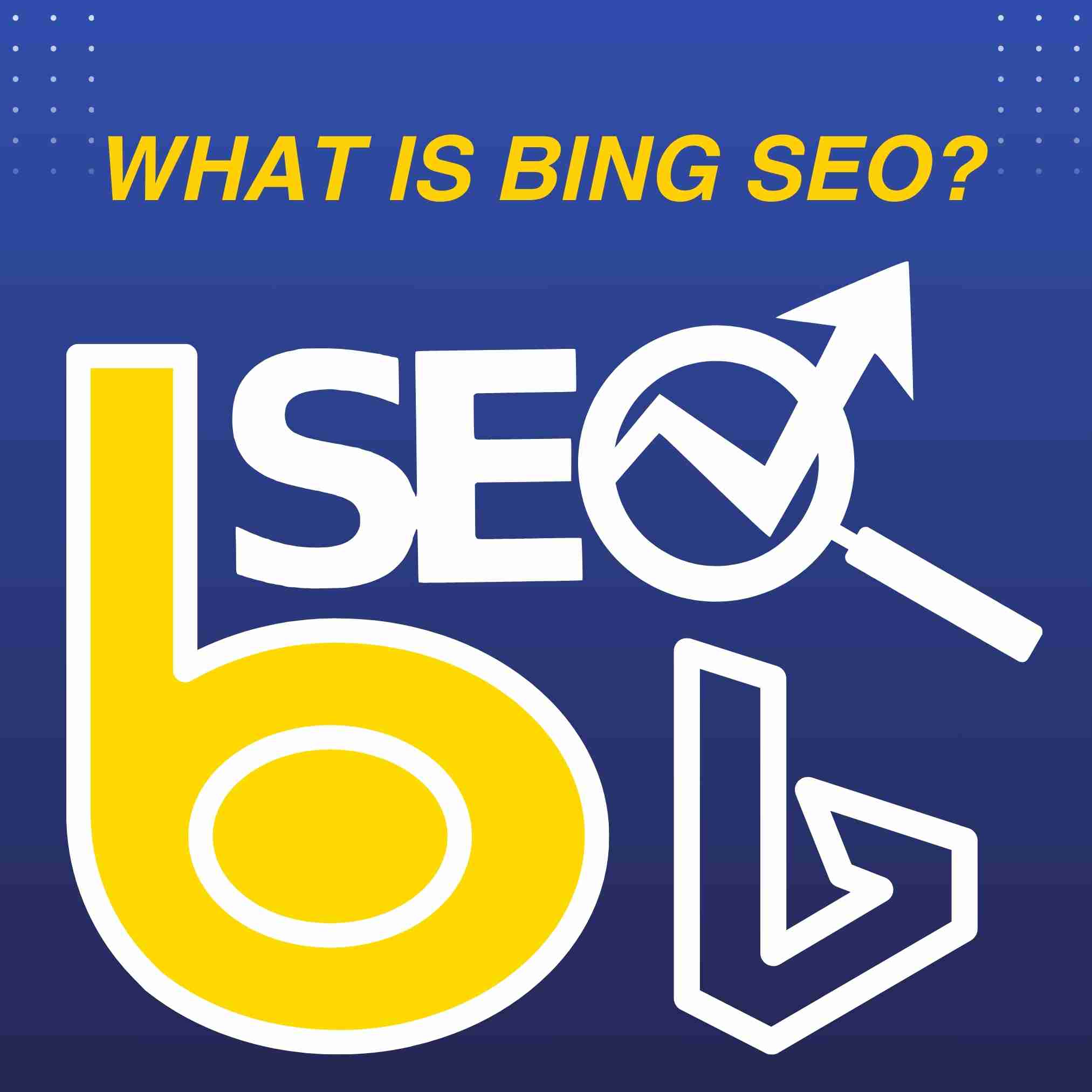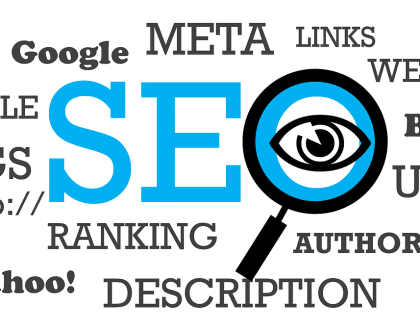Unveiling What is Bing SEO: A Comprehensive Guide

What is Bing SEO? In the vast landscape of search engines, Google has long been the undisputed king, dominating the search market. However, it would be remiss to ignore other players in the field, and one such significant contender is Bing. Bing, owned by Microsoft, may not command the same market share as Google, but it still holds a substantial portion and, therefore, deserves attention from digital marketers and website owners.
Unveiling What is Bing SEO: A Comprehensive Guide
This comprehensive guide aims to delve into the intricacies of Bing SEO (Search Engine Optimization), shedding light on its unique features, differences from Google SEO, and providing practical insights to optimize your website for Bing.
A. Understanding Bing: A Brief Overview
1. Introduction to Bing
- Bing, launched by Microsoft in 2009, is a search engine that serves as the default search engine for Microsoft’s web browser, Microsoft Edge. It has also secured partnerships with various other platforms, including Yahoo, AOL, and Amazon’s Kindle. Although it has not surpassed Google in terms of market share, Bing still plays a crucial role in the search ecosystem.
2. Bing’s Market Share
- While Google remains the dominant force in search with a market share of around 90%, Bing is not to be underestimated. As of the latest available data, Bing holds a solid share of the search market, accounting for approximately 6-7% of all searches globally. This might seem relatively modest compared to Google, but it translates to billions of searches every month.
3. Key Differentiators of Bing
Bing distinguishes itself from Google in several ways, and understanding these differences is vital for effective Bing SEO.
- Visual Appeal: Bing is known for its visually appealing homepage, featuring a daily changing background image. This focus on aesthetics can impact user behavior and engagement.
- Social Integration: Bing integrates social media results into its search, displaying relevant information from platforms like Facebook, Twitter, and LinkedIn in its search results.
- Video Thumbnails: Bing’s search results often include video thumbnails, allowing users to preview video content directly from the search results page.
- Strong Focus on Local Results: Bing places a significant emphasis on local search results, making it a valuable platform for businesses targeting local audiences.
B. Bing SEO Fundamentals
1. Keyword Research for Bing
Similar to Google SEO, Bing SEO starts with comprehensive keyword research. However, Bing and Google may interpret and prioritize keywords differently. Bing tends to favor exact match keywords, so it’s crucial to incorporate specific terms that users might input.
- Use Long-Tail Keywords: Bing is known to be more lenient with long-tail keywords. Including these can help your site rank well for more specific and niche queries.
- Natural Language Matters: Bing places importance on natural language and conversational queries. Optimize your content to match the way people speak and ask questions.
2. On-Page Optimization for Bing
Optimizing your on-page elements is crucial for both Google and Bing SEO. However, there are some nuances to consider when tailoring your strategy for Bing.
- Meta Tags: Ensure that your meta tags (title tags and meta descriptions) are concise, relevant, and contain your target keywords. Bing places importance on these tags when determining rankings.
- Header Tags: Properly structure your content using header tags (H1, H2, H3, etc.). Bing uses these tags to understand the hierarchy and relevance of content on a page.
- Image Alt Text: Provide descriptive alt text for your images. Bing relies on alt text to understand the content and context of images, which can impact your rankings.
3. Quality Content is Key
Both Google and Bing prioritize high-quality, relevant content. However, Bing’s approach to content ranking has some distinctions.
- Keyword Density: While Google has moved away from strict keyword density requirements, Bing still considers it. Aim for a natural keyword density, avoiding keyword stuffing.
- Fresh Content: Bing values fresh content, and regularly updating your website with new information can positively impact your rankings.
- Social Signals: Bing takes into account social signals, including social media shares and engagement. Ensure your content is shareable and consider maintaining an active presence on social media.
4. Technical SEO for Bing
Technical aspects play a crucial role in Bing SEO, and attention to these details can contribute to improved rankings.
- XML Sitemap: Submit a clean and comprehensive XML sitemap to Bing Webmaster Tools. This helps Bing understand the structure of your site and index it more efficiently.
- Page Load Speed: Bing considers page load speed as a ranking factor. Optimize your website’s performance by compressing images, leveraging browser caching, and minimizing unnecessary scripts.
- Mobile Friendliness: Like Google, Bing prioritizes mobile-friendly websites. Ensure your site is responsive and provides a seamless experience across various devices.
- Secure Website (HTTPS): Bing prefers secure websites, so ensure your site is served over HTTPS. This not only aligns with Bing’s preferences but also contributes to better user trust and security.
C. Bing Webmaster Tools: Your SEO Companion
Just as Google provides webmaster tools, Bing offers a suite of tools known as Bing Webmaster Tools. This platform is instrumental in understanding how Bing views your website and provides valuable insights to enhance your SEO efforts.
1. Setting Up Bing Webmaster Tools
To get started with Bing Webmaster Tools:
- Create an Account: If you don’t have one, create a Microsoft account.
- Add Your Website: Once logged in, add your website to Bing Webmaster Tools. You can either add your site by entering the URL or by uploading a verification file to your server.
2. Key Features of Bing Webmaster Tools
Bing Webmaster Tools offers a range of features that can aid in optimizing your website for Bing.
- Site Dashboard: The dashboard provides an overview of your website’s performance, crawl status, and search queries that led users to your site.
- Search Performance: Analyze the search queries that led to clicks on your site. This information can be valuable for refining your content and keyword strategy.
- Crawl Information: Monitor how Bingbot crawls your site. Address any crawl errors and ensure that important pages are being indexed.
- Submit Sitemaps: Submit your XML sitemap to Bing using the tools provided. This helps Bing understand the structure of your site and ensures that all relevant pages are indexed.
- Keyword Research: Bing Webmaster Tools provides insights into keyword research, helping you understand the popularity and competition for specific terms on Bing.
D. Bing Local SEO
Bing places a strong emphasis on local search, making it an essential platform for businesses targeting local audiences. Optimizing for Bing Local involves a distinct set of strategies.
1. Claim Your Bing Places for Business Listing
Similar to Google My Business, Bing Places for Business allows you to create and manage your business listing on Bing. Claiming and verifying your listing is the first step in local optimization.
- Accurate Business Information: Ensure that your business name, address, and phone number (NAP) are accurate and consistent across all online platforms.
- Categories and Attributes: Choose relevant categories and attributes for your business. This helps Bing understand the nature of your business and improves its visibility in local searches.
2. Local Citations and Reviews
Building local citations and encouraging customer reviews are integral parts of Bing Local SEO.
- Consistent Citations: Ensure that your business information is consistent across online directories and citation sites. This consistency reinforces the credibility of your business in the eyes of Bing.
- Customer Reviews: Encourage satisfied customers to leave reviews on your Bing Places for Business listing. Positive reviews can enhance your local search rankings.
E. Bing vs. Google SEO: Key Differences
While many SEO practices are universal, understanding the nuanced differences between Bing and Google is essential for crafting an effective strategy.
1. Keyword Emphasis
- Bing places more emphasis on exact match keywords. While Google has evolved to understand the context and semantics of search queries, Bing still values a closer alignment between the search query and the content on a page.
2. Social Signals
- Bing considers social signals as a ranking factor, incorporating data from social media platforms into its search results. Google, on the other hand, has been more reserved in directly using social signals for ranking.
3. Backlink Quality
- Both Bing and Google consider backlinks in their ranking algorithms. However, Bing tends to prioritize the quality of backlinks over quantity. Focus on acquiring high-quality, relevant backlinks to boost your Bing SEO.
4. Page Load Speed
- While Google has long considered page load speed as a ranking factor, Bing officially announced its consideration of page load speed in 2021. Ensuring your site loads quickly is essential for both search engines.
5. Flash and JavaScript
- Bing has historically been more lenient with Flash and JavaScript than Google. While Google has improved its ability to crawl and index JavaScript, Bing may still be more forgiving in this regard.
6. XML Sitemap Size
- Bing allows larger XML sitemaps compared to Google. While Google recommends a maximum of 50,000 URLs per sitemap, Bing supports up to 125,000 URLs per sitemap.
F. Frequently Asked Questions about Bing SEO
1. Is Bing SEO Really Necessary?
- Yes, Bing SEO is necessary, especially if your target audience uses Bing as their primary search engine. While Google dominates the search market, neglecting Bing means missing out on a substantial portion of potential traffic.
2. Do I Need to Optimize Differently for Bing and Google?
- While many SEO practices are universal, there are nuances to consider when optimizing for Bing. Pay attention to factors such as keyword emphasis, social signals, and backlink quality, which may have different weightings in Bing’s algorithm compared to Google’s.
3. How Does Bing Handle Duplicate Content?
- Bing, like Google, prefers unique and valuable content. While it doesn’t explicitly penalize duplicate content, having unique and original content can positively impact your rankings.
4. Does Bing Prioritize Local Search?
- Yes, Bing places a strong emphasis on local search. Optimizing your website for local SEO, including claiming your Bing Places for Business listing, can significantly improve your visibility in Bing’s local search results.
5. Can I Use the Same Sitemap for Bing and Google?
- Yes, you can use the same XML sitemap for both Bing and Google. However, it’s essential to ensure that your sitemap adheres to the guidelines of each search engine.
Conclusion: Mastering Bing SEO for Enhanced Visibility
In conclusion, Bing SEO is a valuable aspect of any comprehensive search engine optimization strategy. While Google commands the majority of the market share, Bing’s substantial user base makes it a search engine worth optimizing for.
Understanding the nuances of Bing’s algorithm, from its emphasis on exact match keywords to its consideration of social signals, allows digital marketers and website owners to tailor their strategies effectively. By incorporating Bing SEO best practices, optimizing for local search, and leveraging Bing Webmaster Tools, you can enhance your website’s visibility and reach a broader audience.
Remember, the world of SEO is dynamic, and staying informed about updates and changes in search engine algorithms is key to maintaining and improving your search rankings. Keep refining your strategy, monitor your website’s performance using analytics tools, and adapt to the evolving landscape of search engine optimization.
By mastering Bing SEO alongside your Google SEO efforts, you can create a well-rounded and effective online presence that reaches users across different search engines, ultimately driving more traffic and achieving your digital marketing goals.
Recommended Posts

Local SEO vs. Global SEO: A Comprehensive Guide
May 14, 2025



